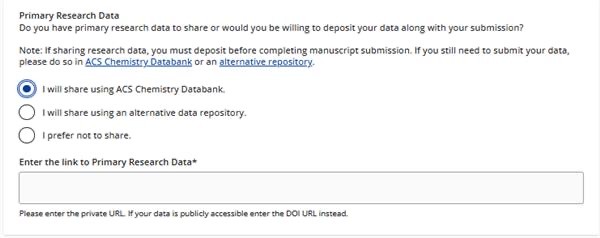ACS Chemistry Databank
Helping your work amplify science
Researchers often want to reproduce the work of others to enhance their own research. But this can be inhibited by a lack of access to the original data from those prior experiments.
To reduce these barriers, and enable implementation of ACS research data policies, the ACS Chemistry Databank repository allows researchers to voluntarily deposit the original data from their research. The CDB is powered by the Dryad open data publishing platform. Authors and readers of papers published in Organic Letters will be the first to benefit from ACS Chemistry Databank.
The data will be reviewed and curated as part of the overall review process for a manuscript. The data publishing process will not affect the outcome or timing of manuscript publishing process. The final curated data sets will gain a citable DOI to ensure they becomes part of the formal scientific record. Other researchers can then use the data to inform their work and easily cite the prior research using this DOI.
How do I share my primary research data when submitting to Organic Letters?
- Before submitting your paper, you should submit the data to ACS Chemistry Databank. The process is simple and takes only a few minutes – it’s explained here. You will receive a “private peer review” link via email after depositing your data.
- You can then submit your manuscript to Organic Letters here (you will be asked to log on using your ACS ID).
- As you submit your manuscript as usual, you will be asked if you wish to share your primary research data.
- Select “I will share using ACS Chemistry Databank”.
- Paste in the private peer review link you received in the box underneath “Enter the link to Primary Research Data”.

- You can then complete your submission. Your data will be curated during the peer-review process. Any revisions will be requested as part of the publishing process.
Experimental data is complex. It can be generated by many experimental methods and analytical modalities. ACS Chemistry Databank will enable organic chemists to share a broad range of analytical (NMR, IR, HPLC, mass spectrometry etc.) and other data produced in their research. Over time, ACS Chemistry Databank will extend to other organic chemistry journals, then evolve to support more data types for other scientific communities.
Scientific progress is built on the work of others. By providing access to original data, ACS Chemistry Databank will amplify science and allow researchers to gain more credit for their work.